Medal standings of the 1984 Summer Olympics
The Olympic Games are always an event of enormous proportions. Every Olympics is a story. Each of them is remembered for something of its own. The 1980 Olympics was no exception, the medal count which deserves special attention, since the USSR national team then took the lead by 12 medals.
Event Features
1980 took place in the capital of the USSR, Moscow. It is worth noting that the 1980 Olympics, the medal count of which deserves special attention, is a very relevant topic. But it should also be remembered that these were the first games in the entire history that took place in Eastern Europe. It was also the first Olympics held in a socialist country.
It is also worth noting that some of these competitions were held in other cities of the USSR. Sailing regattas, for example, started in Tallinn, and the preliminary games of the football tournament, as well as the quarterfinals, were held in Minsk, Leningrad and Kyiv. The competition took place in Mytishchi at a shooting range called "Dynamo".

These games are also known for the fact that more than fifty countries boycotted this Olympics, since Soviet troops were sent to Afghanistan the year before. But some athletes from these countries came to the capital of the USSR to perform under this boycott - one of the reasons for the retaliatory protest that took place at the next Summer Olympics in 1984, held in Los Angeles. These features are one of the aspects for which the 1980 Olympics will be remembered. The medal count tops the list of memorable events because it was truly unique.
Capital of the Olympics
The decision on where this important event would take place was made in Vienna in 1974. The first idea to hold the games in Moscow came from the chairman of the USSR Sports Committee in 1969. But that time the voting results indicated that the Olympics would be held in Montreal. A few years later, Pavlov managed to convince the country’s leadership to nominate the capital of the USSR again. And that time victory remained with Moscow. The choice was between her and Los Angeles. But the USSR capital won by a margin of 19 votes. For the first time, the Summer Olympic Games were held in a socialist country.
Olympic Flame Path
On June 21, the fire moved out from Greece (Athens) and five days later it was in Bulgaria, in Sofia. After this he went to Bucharest, where he arrived on July 1st. Then, on the 5th, he ended up in the Moldavian SSR, where he crossed the border of the USSR, ending up in Chisinau on July 6th. On July 11, the Olympic flame passed through Kyiv, from where it went to Kharkov. Then his path lay through Tula and Podolsk directly to Moscow, the capital of the 1980 Olympic Games.

Results of the 1980 Olympics: medals, table
As mentioned earlier, the games of that year stood out in many ways. The 1980 Olympics shocked everyone. The medal count that year was truly memorable. But there were some other interesting features. For example, the youngest participant was 13 years old (Jorge Lima), and the oldest was 70 years old! 80 countries participated, from which a total of 5253 participants came. Among them are 1,120 women and 4,133 men. The prize-winner of that Olympics was gymnast Alexander Dityatin, who then received eight awards.
Now about the USSR received the most awards - 41 medals, of which 15 were gold, 14 silver and 12 bronze. Next comes the GDR, which won fewer - 29 units. Of these, 11 are gold, 8 are silver and 10 are bronze. Next, with a huge lead of 19 medals, is Great Britain, which received 4 gold, 2 silver and 4 bronze. It is worth noting that these Summer Olympic Games will be remembered for this medal count, since such a large gap observed in the number of awards won is a rare occurrence. Thanks to this, these Games entered the history of world sports.
Several cities competed to host the 1996 Olympic Games: Athens, Belgrade, Manchester, Melbourne, Toronto and Atlanta. Athens, of course, was the favorite - the 100th anniversary of the first Olympics was planned and they wanted to hold it in Greece. But members of Atlanta's bid committee were able to convince the IOC that the city was well prepared for the summer Games. As a result, on September 18, 1990, at the 96th session of the IOC, Atlanta was announced as the capital of the 1996 Summer Olympics.
Mascot of the 1996 Summer Olympics in Atlanta
They decided to generate it on a computer. As a result, the creature came out strange: barefoot without a nose or mouth. The designers tried to give Izzy a more attractive look: a big mouth, a tail with Olympic rings, funny boots and white gloves. Then we added sparkling star eyes. The creature's name Izzy is short for Whatisit? ("What it is?"). He is considered one of the worst Olympic mascots.

Opening of the 1996 Olympics
The ceremony took place on July 19, 1996 at the Olympic Stadium in Atlanta. The broadcast was carried out by 170 television companies, and was watched by about 3.5 billion viewers. The main themes of the performance were the history of Atlanta and the American South, as well as the 100th anniversary of the Olympic movement. 
10,700 athletes from 197 participating countries took part in the parade. The Russian flag was carried at the ceremony by wrestler Alexander Karelin, who later won his third Olympic gold medal in Atlanta.
After a speech by IOC President Juan Antonio Samaranch and Games Organizing Committee President Billy Payne, US President Bill Clinton declared the 1996 Olympics open. The Olympic flag was raised and the Flame was lit, carried by swimmer Janet Evans and boxer Evander Holyfield, and lit by former boxer Muhammad Ali.

The culmination was the song “The Power of Dreams” performed by the famous singer Celine Dion, and then a colorful fireworks display.

Russia at the 1996 Olympics
The Russian team competed as a separate country for the first time at the Summer Olympics in Atlanta. According to the results of the medal standings at the 1996 Olympics, the Russian team won second place after the US team. The Russians received 63 medals: 26 gold, 21 silver and 16 bronze.
Most of the winners were among swimmers, wrestlers, fencers and track and field athletes. Swimmer Alexander Popov was able to win 4 medals: 2 gold and 2 silver, and became a four-time Olympic champion.

Criticism of the organization of the 1996 Olympics
Athletes, journalists and officials were very dissatisfied with the organization of the Games. There are many problems with traffic, numerous failures in the operation of information systems, unpreparedness of volunteers, too much commercialization of the Olympics in Atlanta.
But the most serious incident was the explosion in the Olympic Park on July 27 at night, in which 2 people died during mass celebrations and 111 people were injured of varying severity. After many assurances from the organizers of increased security measures, the 1996 Summer Olympics decided to continue.

The criminal was detained only a year later after several more terrorist attacks and was given four life sentences with no right to parole.
Closing of the 1996 Summer Olympics
At the ceremony, Juan Antonio Samaranch, the IOC President, did not say the phrase “These Games were the best in history” for the first and last time.
The closing ceremony took place at the Olympic Stadium on August 4 and was attended by more than 85 thousand people. Many American musicians took part in it. At the ceremony, the last awards of the Summer Olympics were presented to the winners in the men's marathon.
The final parade showed Olympic unity - all athletes marched together without division by country.

In his speech, Juan Antonio Samaranch called for remembering the victims of the Atlanta park explosion and the Israeli athletes who died in Munich 1972.
The Olympic flag was lowered and the banner was presented to the mayor of Sydney, the capital of the next Games. It all ended with a magnificent fireworks display.
Doping scandal at the 1996 Games
On July 28, IOC representatives announced that tests of Russian athletes: swimmer Andrei Korneev, cyclist Rita Razmaite and wrestler Zafar Guliyev tested positive for the banned drug bromantane.
Then bromantane was found: in swimmer Nina Zhivanevskaya on July 30, in runner Marina Trandenkova on August 1. All caught athletes were disqualified and their medals were taken away. But after the arbitration court in Lausanne, when it became clear that the drug was banned during the Games, but was not blacklisted, the athletes’ results were restored and the medals were returned.
Is Ancient Greece. In an original and rich state, these competitions were part of a religious cult. More than two thousand years have passed since then, but the tradition of holding the Olympic Games every four years has not died out. Each time the number of countries wishing to participate in these competitions is growing.
Venue of the competition
In 2014, winter ones were held in the Russian city of Sochi. Eighty-eight countries took part in this event. This is almost twice as much as in Sarajevo, where the 1984 Winter Olympics were held. At that time, this city was the capital of Yugoslavia. Sarajevo could hardly be called a modern metropolis. Rather, it was a huge village with narrow streets, the houses of which were comfortably located on the hills and mounds. Until this time, the capital of Yugoslavia was famous for only one event: it was here that the heir to the Austro-Hungarian throne was killed. This event became a turning point in the tense relations of the West, and as a result, the First World War began.

The first Winter Olympics on the territory of a socialist country
Then, until the end of the 70s of the 20th century, this city did not manifest itself in any way. In 1978, at the next session, he decided that the 1984 Winter Olympics would be held in Sarajevo. In order to carry out the opening and closing ceremonies of the games, as well as for some competitions, the largest sports stadium, Asim Ferhatović-Hase, was reconstructed in the city. It is noteworthy that the 1984 Winter Olympics was the first event of this scale held on the territory of a socialist country.

Start of the games
The opening ceremony of the competition took place on a frosty February day on the eighth. Some people think differently. According to a small number of people, the beginning of competitions in a particular sport was the day when the 1984 Winter Olympics actually started. Hockey was the first game of the fourteenth games. This happened on the seventh of February. That day, the USSR national team successfully advanced to the next stage, brilliantly defeating Poland. The Soviet Union team became the champion that year. The Czechoslovakian team took second place.
The 1984 Winter Olympics offered ten sports disciplines to the attention of spectators and athletes: figure skating, hockey, ski jumping, luge, biathlon, cross-country skiing, Nordic combined, bobsleigh, speed skating and alpine skiing. A total of thirty-nine sets of medals were awarded.

Medal count
It is noteworthy that it was at these competitions that many new names were discovered. The alpine skiers especially distinguished themselves. The delight and joy of the residents of hospitable Yugoslavia knew no bounds when their compatriot, twenty-two-year-old Jure Franko, took a silver medal in the giant slalom competition. As the Oslobodzhene newspaper later noted, this victory was a worthy reward for years of hard work and preparation for the “white” games.
On February 19, the 1984 Winter Olympics was officially closed. The medal standings for the competition are as follows. In terms of the number of valuable prizes, the USSR occupies the first step of the podium. In total, the team's athletes won 25 awards. However, in terms of the number of gold medals, the largest socialist country was inferior to the GDR. won three more “yellow” awards. The 1984 Winter Olympics gave the United States only eight medals. Norway received 9 medals, and Finland - 13. It is noteworthy that this time the Austrian team performed absolutely poorly. As a rule, this country has always achieved excellent results in winter sports. But not at this time. Austrian athletes took home only one bronze medal.

Boycott by socialist countries
In 1980, the Olympics were held in Moscow. 1984 gave the world (in addition to the “white” games) also summer games. They were held in the United States of America - in Los Angeles. It is noteworthy that these competitions were boycotted by socialist states. The reason for this lies in the strained relations between NATO and the countries of the socialist bloc. It is worth noting that initially, in 1980, democratic republics boycotted the Olympics in Moscow. Thus, the absence of the national teams of the USSR and other countries from the 1984 Summer Games was a retaliatory move to America.
Of course, in order to boycott such an event, compelling reasons are needed. Formally, the socialist cell of the countries refused to participate in the 1984 competitions due to the refusal of the leadership of the organizing committee of the games to provide safety guarantees to the athletes.
It should also be noted that the boycott of the 1984 Olympics is a kind of step against the “Carter Doctrine.” That, in turn, implies assistance to anti-Soviet rebels in Afghanistan.

Aeroflot doesn’t fly, Georgia doesn’t fly...
Back in the fall of 1983, the government of the Soviet Union sent a sports delegation to the United States to determine the condition of sports facilities and the future locations of guests. Having identified a huge number of shortcomings, the leadership of the countries of the socialist camp expressed concern about this matter. The greatest concern was caused by the US government's refusal to moor the Georgian ship off the coast of the city. It was planned that the USSR delegation would live on board the ship. The second negative point was the ban on the landing of Soviet aircraft by Aeroflot.
A few months later, a Politburo resolution was issued, which contained clauses describing the inappropriateness of the presence of the USSR national team at the 1984 Summer Olympics held in the USA. The pages of the document also contained measures aimed at suppressing discontent among the people and creating a favorable image of the Soviet Union (in comparison with the countries of the democratic bloc). Neighboring socialist countries were also invited to take part in the boycott. Instead of the 1984 Summer Olympics, the Friendship-84 competition was held in Moscow. If we compare the performance of the two events, the Soviet analogue gave the world several times more world records than the games in the USA.
After the boycott of the 1984 Olympics, he issued a decree on sanctions against states that decided to continue to interfere with this kind of competition.
The Olympic Games are always an event of enormous proportions. Every Olympics is a story. Each of them is remembered for something of its own. The 1980 Olympics was no exception, the medal count which deserves special attention, since the USSR national team then took the lead by 12 medals.
Event Features
The 1980 Summer Olympics were held in the capital of the USSR, Moscow. It is worth noting that the 1980 Olympics, the medal count of which deserves special attention, is a very relevant topic. But it should also be remembered that these were the first games in the entire history that took place in Eastern Europe. It was also the first Olympics held in
It is also worth noting that some of these competitions were held in other cities of the USSR. Sailing regattas, for example, started in Tallinn, and the preliminary games of the football tournament, as well as the quarterfinals, were held in Minsk, Leningrad and Kyiv. The competition took place in Mytishchi at a shooting range called "Dynamo".

These games are also known for the fact that more than fifty countries boycotted this Olympics, since Soviet troops were sent to Afghanistan the year before. But some athletes from these countries came to the capital of the USSR to perform under this boycott - one of the reasons for the retaliatory protest of the Soviet Union, which took place at the next Summer Olympics in 1984, held in Los Angeles. These features are one of the aspects for which the 1980 Olympics will be remembered. The medal count tops the list of memorable events because it was truly unique.
Capital of the Olympics
The decision on where this important event would take place was made in Vienna in 1974. The first idea to hold the games in Moscow came from Sergei Pavlov, chairman of the USSR Sports Committee, in 1969. But that time the voting results indicated that the Olympics would be held in Montreal. A few years later, Pavlov managed to convince the country’s leadership to nominate the capital of the USSR again. And that time victory remained with Moscow. The choice was between her and Los Angeles. But the USSR capital won by a margin of 19 votes. For the first time they took place in a socialist country.
Olympic Flame Path
On June 21, the fire moved out from Greece (Athens) and five days later it was in Bulgaria, in Sofia. After this he went to Bucharest, where he arrived on July 1st. Then, on the 5th, he ended up in the Moldavian SSR, where he crossed the border of the USSR, ending up in Chisinau on July 6th. On July 11, the Olympic flame passed through Kyiv, from where it went to Kharkov. Then his path lay through Tula and Podolsk directly to Moscow, the capital of the 1980 Olympic Games.

Results of the 1980 Olympics: medals, table
As mentioned earlier, the games of that year stood out in many ways. The 1980 Olympics shocked everyone. The medal count that year was truly memorable. But there were some other interesting features. For example, the youngest participant was 13 years old (Jorge Lima), and the oldest was 70 years old! 80 countries participated, from which a total of 5253 participants came. Among them are 1,120 women and 4,133 men. The prize-winner of that Olympics was gymnast Alexander Dityatin, who then received eight awards.
Now about the USSR received the most awards - 41 medals, of which 15 were gold, 14 silver and 12 bronze. Next comes the GDR, which won fewer - 29 units. Of these, 11 are gold, 8 are silver and 10 are bronze. Next, with a huge lead of 19 medals, is Great Britain, which received 4 gold, 2 silver and 4 bronze. It is worth noting that these Summer Olympic Games will be remembered for this medal count, since such a large gap observed in the number of awards won is a rare occurrence. Thanks to this, these Games entered the history of world sports.
Attention, TODAY only!
- Do you know why the Olympic Games are called “Olympic”?
| 03:05 | Curling. Mixed couples. Preliminary round. China - Switzerland | qualification |
| 03:05 | Curling. Mixed couples. Preliminary round. Canada - Norway | qualification |
| 03:05 | Curling. Mixed couples. Preliminary round. South Korea - Finland | qualification |
| 03:05 | Curling. Mixed couples. Preliminary round. USA - Russia | qualification |
| 14:05 | Curling. Mixed couples. Preliminary round. USA - Canada | qualification |
| 14:05 | Curling. Mixed couples. Preliminary round. South Korea - China | qualification |
| 14:05 | Curling. Mixed couples. Preliminary round. Finland - Switzerland | qualification |
| 14:05 | Curling. Mixed couples. Preliminary round. Russia - Norway | qualification |
| 02:35 | Curling. Mixed couples. Preliminary round. Russia - Finland | qualification |
| 02:35 | Curling. Mixed couples. Preliminary round. South Korea - Norway | qualification |
| 02:35 | Curling. Mixed couples. Preliminary round. China - Canada | qualification |
| 02:35 | Curling. Mixed couples. Preliminary round. USA - Switzerland | qualification |
| 07:35 | Curling. Mixed couples. Preliminary round. Canada - Finland | qualification |
| 07:35 | Curling. Mixed couples. Preliminary round. USA - South Korea | qualification |
| 07:35 | Curling. Mixed couples. Preliminary round. Switzerland - Norway | qualification |
| 07:35 | Curling. Mixed couples. Preliminary round. China - Russia | qualification |
| 03:05 | Curling. Mixed couples. Preliminary round. China - USA | qualification |
| 03:05 | Curling. Mixed couples. Preliminary round. Norway - Finland | qualification |
| 03:05 | Curling. Mixed couples. Preliminary round. Canada - Switzerland | qualification |
| 03:05 | Curling. Mixed couples. Preliminary round. South Korea - Russia | qualification |
| 14:05 | Curling. Mixed couples. Preliminary round. Switzerland - South Korea | qualification |
| 14:05 | Curling. Mixed couples. Preliminary round. Russia - Canada | qualification |
| 14:05 | Curling. Mixed couples. Preliminary round. Finland - China | qualification |
| 14:05 | Curling. Mixed couples. Preliminary round. Norway - USA | qualification |
| 03:05 | Curling. Men. Preliminary round. Canada - Italy | qualification |
| 03:05 | Curling. Men. Preliminary round. South Korea - USA | qualification |
| 03:05 | Curling. Men. Preliminary round. Switzerland - UK | qualification |
| 03:05 | Curling. Men. Preliminary round. Denmark - Sweden | qualification |
| 08:05 | Curling. Women. Preliminary round. Denmark - Sweden | qualification |
| 08:05 | Curling. Women. Preliminary round. Switzerland - China | qualification |
| 08:05 | Curling. Women. Preliminary round. Japan - USA | qualification |
| 08:05 | Curling. Women. Preliminary round. Russia - UK | qualification |
| 14:05 | Curling. Men. Preliminary round. Norway - Japan | qualification |
| 14:05 | Curling. Men. Preliminary round. Switzerland - Italy | qualification |
| 14:05 | Curling. Men. Preliminary round. Canada - UK | qualification |
| 14:05 | Curling. Men. Preliminary round. South Korea - Sweden | qualification |
| 03:05 | Curling. Women. Preliminary round. Canada - South Korea | qualification |
| 03:05 | Curling. Women. Preliminary round. UK - USA | qualification |
| 03:05 | Curling. Women. Preliminary round. Denmark - Japan | qualification |
| 03:05 | Curling. Women. Preliminary round. China - Russia | qualification |
| 08:05 | Curling. Men. Preliminary round. Norway - Canada | qualification |
| 08:05 | Curling. Men. Preliminary round. USA - Italy | qualification |
| 08:05 | Curling. Men. Preliminary round. Denmark - Switzerland | qualification |
| 08:05 | Curling. Men. Preliminary round. UK - Japan | qualification |
| 14:05 | Curling. Women. Preliminary round. South Korea - Japan | qualification |
| 14:05 | Curling. Women. Preliminary round. China - UK | qualification |
| 14:05 | Curling. Women. Preliminary round. Canada - Sweden | qualification |
| 14:05 | Curling. Women. Preliminary round. USA - Switzerland | qualification |
| 03:05 | Curling. Men. Preliminary round. Italy - Denmark | qualification |
| 03:05 | Curling. Men. Preliminary round. Sweden - USA | qualification |
| 03:05 | Curling. Men. Preliminary round. Norway - South Korea | qualification |
| 08:05 | Curling. Women. Preliminary round. Sweden - Russia | qualification |
| 08:05 | Curling. Women. Preliminary round. Denmark - Canada | qualification |
| 08:05 | Curling. Women. Preliminary round. South Korea - Switzerland | qualification |
| 14:05 | Curling. Men. Preliminary round. Denmark - USA | qualification |
| 14:05 | Curling. Men. Preliminary round. Sweden - UK | qualification |
| 14:05 | Curling. Men. Preliminary round. Japan - Switzerland | qualification |
| 14:05 | Curling. Men. Preliminary round. Canada - South Korea | qualification |
| 03:05 | Curling. Women. Preliminary round. Switzerland - Sweden | qualification |
| 03:05 | Curling. Women. Preliminary round. Denmark - UK | qualification |
| 03:05 | Curling. Women. Preliminary round. Japan - China | qualification |
| 03:05 | Curling. Women. Preliminary round. Russia - USA | qualification |
| 08:05 | Curling. Men. Preliminary round. Canada - Sweden | qualification |
| 08:05 | Curling. Men. Preliminary round. South Korea - UK | qualification |
| 08:05 | Curling. Men. Preliminary round. Switzerland - Norway | qualification |
| 08:05 | Curling. Men. Preliminary round. Japan - Italy | qualification |
| 14:05 | Curling. Women. Preliminary round. Russia - Japan | qualification |
| 14:05 | Curling. Women. Preliminary round. South Korea - UK | qualification |
| 14:05 | Curling. Women. Preliminary round. USA - Canada | qualification |
| 14:05 | Curling. Women. Preliminary round. China - Denmark | qualification |
| 03:05 | Curling. Men. Preliminary round. Norway - Denmark | qualification |
| 03:05 | Curling. Men. Preliminary round. USA - Japan | qualification |
| 03:05 | Curling. Men. Preliminary round. Switzerland - Canada | qualification |
| 08:05 | Curling. Women. Preliminary round. Canada - Switzerland | qualification |
| 08:05 | Curling. Women. Preliminary round. China - South Korea | qualification |
| 08:05 | Curling. Women. Preliminary round. UK - Sweden | qualification |
| 14:05 | Curling. Men. Preliminary round. USA - Norway | qualification |
| 14:05 | Curling. Men. Preliminary round. Denmark - South Korea | qualification |
| 14:05 | Curling. Men. Preliminary round. Italy - UK | qualification |
| 14:05 | Curling. Men. Preliminary round. Sweden - Japan | qualification |
| 03:05 | Curling. Women. Preliminary round. USA - Denmark | qualification |
| 03:05 | Curling. Women. Preliminary round. Russia - Switzerland | qualification |
| 03:05 | Curling. Women. Preliminary round. Sweden - South Korea | qualification |
| 03:05 | Curling. Women. Preliminary round. Japan - Canada | qualification |
| 08:05 | Curling. Men. Preliminary round. USA - Canada | qualification |
| 08:05 | Curling. Men. Preliminary round. Italy - South Korea | qualification |
| 08:05 | Curling. Men. Preliminary round. Sweden - Switzerland | qualification |
| 08:05 | Curling. Men. Preliminary round. UK - Denmark | qualification |
| 14:05 | Curling. Women. Preliminary round. Japan - Sweden | qualification |
| 14:05 | Curling. Women. Preliminary round. Denmark - Russia | qualification |
| 14:05 | Curling. Women. Preliminary round. China - USA | qualification |
| 14:05 | Curling. Women. Preliminary round. UK - Switzerland | qualification |
| 03:05 | Curling. Men. Preliminary round. UK - Norway | qualification |
| 03:05 | Curling. Men. Preliminary round. Italy - Sweden | qualification |
| 03:05 | Curling. Men. Preliminary round. Japan - Canada | qualification |
| 03:05 | Curling. Men. Preliminary round. South Korea - Switzerland | qualification |
| 08:05 | Curling. Women. Preliminary round. Canada - China | qualification |
| 08:05 | Curling. Women. Preliminary round. USA - South Korea | qualification |
| 08:05 | Curling. Women. Preliminary round. UK - Japan | qualification |
| 14:05 | Curling. Men. Preliminary round. Norway - Italy | qualification |
| 14:05 | Curling. Men. Preliminary round. Japan - Denmark | qualification |
| 14:05 | Curling. Men. Preliminary round. Switzerland - USA | qualification |
| 03:05 | Curling. Women. Preliminary round. South Korea - Russia | qualification |
| 03:05 | Curling. Women. Preliminary round. Sweden - China | qualification |
| 03:05 | Curling. Women. Preliminary round. Canada - UK | qualification |
| 03:05 | Curling. Women. Preliminary round. Switzerland - Denmark | qualification |
| 08:05 | Curling. Men. Preliminary round. South Korea - Japan | qualification |
| 08:05 | Curling. Men. Preliminary round. Denmark - Canada | qualification |
| 08:05 | Curling. Men. Preliminary round. UK - USA | qualification |
| 08:05 | Curling. Men. Preliminary round. Sweden - Norway | qualification |
| 14:05 | Curling. Women. Preliminary round. South Korea - Denmark | qualification |
| 14:05 | Curling. Women. Preliminary round. Sweden - USA | qualification |
| 14:05 | Curling. Women. Preliminary round. Russia - Canada | qualification |
| 14:05 | Curling. Women. Preliminary round. Switzerland - Japan | qualification |
| 14:00 | Skating. Women. Team race. Semi-finals | semi-final |
| 14:22 | Skating. Men. Team race. Semi-finals | semi-final |
| 14:54 | Skating. Women. Team race. Consolation finals | consolation playoffs |
| 15:13 | Skating. Men. Team race. Consolation finals | consolation playoffs |
| 15:52 | Skating. Women. Team race. Small final | for 3rd place |
| 15:58 | Skating. Women. Team race. The final | the final |
| 16:11 | Skating. Men. Team race. Small final | for 3rd place |
| 16:17 | Skating. Men. Team race. The final | the final |
| 05:00 | Snowboard. Men. Big air | the final |
| 06:00 | Snowboard. Women. Parallel giant slalom. 1/8 finals | 1/8 finals |
| 06:15 | Snowboard. Men. Parallel giant slalom. 1/8 finals | 1/8 finals |
| 06:30 | Snowboard. Women. Parallel giant slalom. Quarterfinals | 1/4 finals |
| 06:38 | Snowboard. Men. Parallel giant slalom. Quarterfinals | 1/4 finals |
| 06:48 | Snowboard. Women. Parallel giant slalom. Semi-finals | semi-final |
| 06:52 | Snowboard. Men. Parallel giant slalom. Semi-finals | semi-final |
| 08:28 | Snowboard. Women. Parallel giant slalom. Small final | for 3rd place |
| 08:30 | Snowboard. Women. Parallel giant slalom. The final | the final |
| 08:34 | Snowboard. Men. Parallel giant slalom. Small final | for 3rd place |
| 08:37 | Snowboard. Men. Parallel giant slalom. The final | the final |
| 09:35 | Curling. Men. The final. Sweden - USA | the final | |||
| 14:05 | Curling. Women. Small final. Japan - UK | 32 | 5 | 10 | |
| 12 | Russia | 2 | 6 | 9 | 17 |
| 13 | Czech | 2 | 2 | 3 | 7 |
| 14 | Belarus | 2 | 1 | 0 | 3 |
| 15 | China | 1 | 6 | 2 | 9 |
| 16 | Slovakia | 1 | 2 | 0 | 3 |
| 17 | Finland | 1 | 1 | 4 | 6 |
| 18 | Great Britain | 1 | 0 | 4 | 5 |
| 19 | Poland | 1 | 0 | 1 | 2 |
| 20 | Hungary | 1 | 0 | 0 | 1 |
| 21 | Ukraine | 1 | 0 | 0 | 1 |
| 22 | Australia | 0 | 2 | 1 | 3 |
| 23 | Slovenia | 0 | 1 | 1 | 2 |
| 24 | Belgium | 0 | 1 | 0 | 1 |
| 25 | Spain | 0 | 0 | 2 | 2 |
| 26 | New Zealand | 0 | 0 | 2 | 2 |
| 27 | Kazakhstan | 0 | 0 | 1 | 1 |
| 28 | Latvia | 0 | 0 | 1 | 1 |
| 29 | Liechtenstein | 0 | 0 | 1 | 1 |


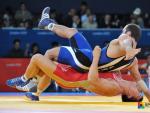
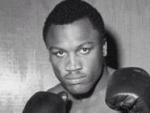

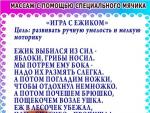

 Medal standings of the 1984 Summer Olympics
Medal standings of the 1984 Summer Olympics Main news Amkar official
Main news Amkar official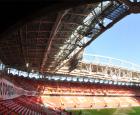 Who will take part in the championship
Who will take part in the championship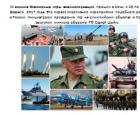 III Winter Military World Games: full schedule
III Winter Military World Games: full schedule